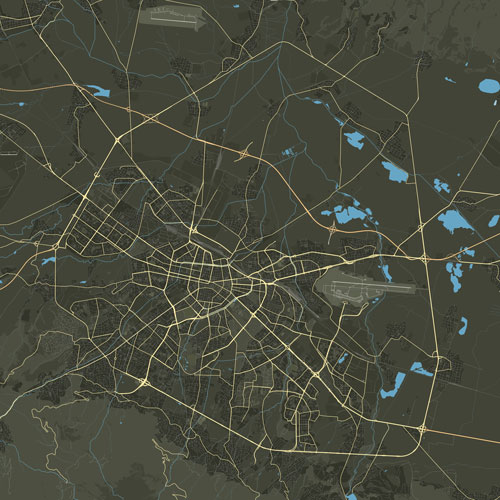Geographical and Demographic Details:
Bulgaria spans an area of approximately 110,994 square kilometers (42,855 square miles), making it a country with diverse landscapes and rich cultural heritage. As of the latest data, Bulgaria is home to 7,606,551 residents. The capital city, Sofia, lies at the heart of the nation and serves as its administrative and cultural center. The Bulgarian Lev (BGN), which is pluralized as Leva, is the national currency facilitating economic transactions within the country. Bulgarian, a language with deep historical roots, is the official language, emphasizing the nation’s unique identity in the European landscape. Bulgaria operates on Eastern European Time (GMT+2) and does not have internal time zones, ensuring uniformity across the country. The country’s telephone code is 00359, with Sofia’s area phone code designated as 02.
Climate Patterns:
Bulgaria exhibits a moderate climate with an average annual temperature of 10.5°C (50.9°F). Summer temperatures average around 23°C (73.4°F), offering pleasant weather for exploring the country’s natural beauty. In contrast, winter temperatures hover around the freezing point (0°C or 32°F), perfect for winter sports enthusiasts.
Utilities and Measurements:
The standard voltage for electricity in Bulgaria is 220 Volts AC, compatible with European 2 round pin plugs. The country adheres to the metric system for all measurements, facilitating easy conversions: meters to feet (divide by 0.3048), kilometers to miles (divide by 1.6083), kilograms to pounds (divide by 0.4536), and hectares to acres (divide by 0.4047).
Accessibility and Services:
Banking hours are typically from 09:00 to 16:30, Monday through Friday. The healthcare system is robust, with no specific vaccination requirements for entry. Bulgaria Air, the national carrier, operates from Sofia International Airport, located just 10 kilometers from the city center. Transportation to the city is facilitated through bus routes 84 and 184 from Terminal 1, and a metro service alongside buses from Terminal 2, ensuring convenient access for travelers.
Language and Cultural Heritage:
Bulgarian, the official language, boasts of being the first Slavic language to have its own alphabet, introduced in the 9th century. The Cyrillic alphabet, made official in the European Union on 1 January 2007, is a significant cultural marker not only for Bulgarians but also for Serbs, Montenegrins, Russians, Ukrainians, Belarusians, and Mongolians, collectively encompassing over 200 million speakers worldwide. The Cyrillic alphabet’s significance is celebrated annually on 24th May, marking the day of Bulgarian enlightenment, culture, and the creation of the Slavonic alphabet by Saints Cyril and Methodius. This day is revered as one of the most cherished holidays in Bulgaria, symbolizing the rich cultural and historical legacy of the nation.

